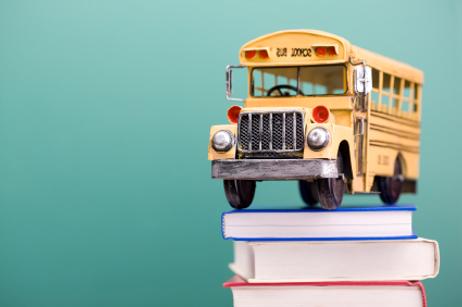School buses have traditionally been the transportation of choice for public school students across the country. These big yellow vehicles have become a mainstay in both urban and suburban communities, offering students access to school campuses that might have difficulty getting to and from school otherwise. However, budget cuts, rising gas prices, and concerns over their environmental impact have forced many school districts to take another look at the diesel-run buses that dominate most school districts today. In some cases, propane buses are providing a cheaper and more environmentally friendly option.
This video looks at propane-powered school buses.
The Cost of Diesel
The expense of running children to and from school on diesel buses is not a small one by any means. According to a report in the Christian Science Monitor, it is estimated that more than 25 million children ride the bus to school each day. In some areas, year-round schooling means no respite from gas bills over the summer months. As the number of children requiring bus transportation remains relatively consistent, the cost of fuel does not.
The National Association for Fuel Transportation estimated that in some areas two years ago, the cost of fuel shot up from $1.95 per gallon to more than $4 per gallon during a single academic year. A 100% increase was extremely tough on many school districts that were already feeling the budget pinch due to the current economic slowdown. Some districts even cut back on bussing schedules just to make ends meet, leaving students without transportation to and from school.
This video compares diesel versus propane-powered school buses.
Benefits of Propane
There are a number of reasons to consider propane buses over their diesel counterparts. First, many areas of the country offer propane filling stations that are much cheaper than diesel fuel. A report issued by the U.S. Department of Energy also estimates that smaller propane tanks can be cheaper to fill than those holding natural gas, and they are as equally friendly to the environment. The period between oil changes for propane-run buses can also be extended, further reducing the cost of operating these vehicles.
Then, there are government incentives to consider. In 2008, the federal government appropriated $4.2 million for reducing emissions from diesel engines. That means money could be available to establish the necessary infrastructure for propane, including retrofitting or purchasing new buses for this purpose. School districts might also get a federal tax credit that offers 50 cents back on every gallon of propane used throughout the year.
Green Success Stories
While the idea of switching to propane or another form of alternative fuel may sound good on paper, how does it stack up in practical use? According to some of the school districts across the country that have made the switch, the proof is in the pudding – as well as the savings many of these districts have enjoyed since converting their buses. We have just a few examples of school districts that are going green with their student transportation options.
In Texas, eight El Paso-area school districts have made the switch to propane, according to a report on the Railroad Commission of Texas website. The project began with 16 ultra-low emission propane buses, but 56 more have been added since the program began. The districts hope to continue to expand their propane-based fleet by replacing retiring buses with the newer style. The press release reports that these buses have cut 14.6 tons of smog-forming NOx, 94 tons of carbon monoxide, and one ton of particulate matter from the El Paso air. It is also estimated that each bus will save school districts more than $5,800 the first year and $1,250 each year after.
In Portland, Oregon, the school district received $600,000 in federal tax credits for its propane-based buses in 2008. About 90% of this district's school buses run on propane currently. Phil Weber, Portland's director of transportation, told the Christian Science Monitor, "I was not a believer in propane. But I crunched the numbers and propane does pay off." This school district has been using propane buses since 1983, with great success and cost savings. Weber estimated that it took the district about five years to recoup the expense of switching to propane buses, including the cost of propane fuel pumps and retrofits.
Going green is one-way school districts can cut their budgets and help the environment at the same time. While propane might not be the best solution in all school districts, the schools that have switched to propane-powered school buses are enjoying significant savings and the satisfaction of a reduced carbon footprint. With incentives from the federal government, it may not be long before other districts nab the benefits propane offers.
Questions? Contact us on Facebook. @publicschoolreview











